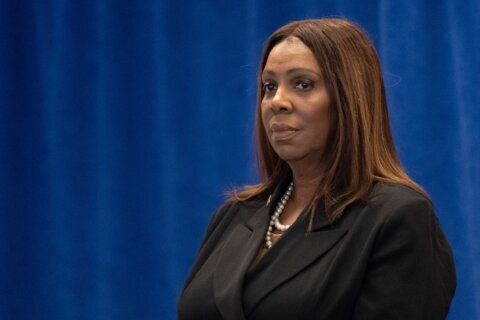WASHINGTON — The Christmas shopping season begins in earnest with the annual blizzard of Black Friday sales and specials, but how much of a discount are you getting? And off what price? It’s harder and harder to tell, and not necessarily by accident.
The Wall Street Journal says that the Black Friday discount picture is clouded by the panoply of specials that retailers offer year-round, driven by customers’ demand for such deals. The Journal cites research finding that more than three-quarters of American shoppers want a discount of at least 60 percent before they’ll buy something.
Retailers have been selling 21 percent fewer items at full price in the period since September than they were during the same time period a year ago, The Journal finds. But what is full price? That question is getting more and more complicated — by design. The Journal says retailers are trying to “cloud the transparency of online pricing, making it harder for shoppers to compare prices across chains.”
Not that prices are all that stable online: The price-tracking company Market Track says that Amazon changed the prices of 180 popular items 666 times between Nov. 1 and Nov. 19. That’s 51 percent more changes than during the same period last year. And they’re not alone — Wal-Mart changes prices on similar items 631 times, and Best Buy 263 times, during the same period, Market Track finds.
“We’re not at the pinnacle of this volatility yet,” said Traci Gregorski, Market Track’s vice president of marketing. “It will get even crazier.”
Customers also need to be aware of what “stackable deals” really are: A second reduction is on the first reduced price, not the full price. The Journal provides the example of a $100 sweater that’s discounted 20 percent, then another 25 percent. The final price isn’t a 45 percent reduction to $55; it’s a 40 percent reduction to $60. Such stackable deals were up about 30 percent last year over 2013.
And as many consumers have long suspected, “discount” prices can be reductions from artificial highs. J.C. Penney Co. and Michael Kors have recently agreed to settle class-action lawsuits accusing them of doing just that, and TJX Co., Amazon, Kohl’s and Nordstrom are facing similar accusations.








